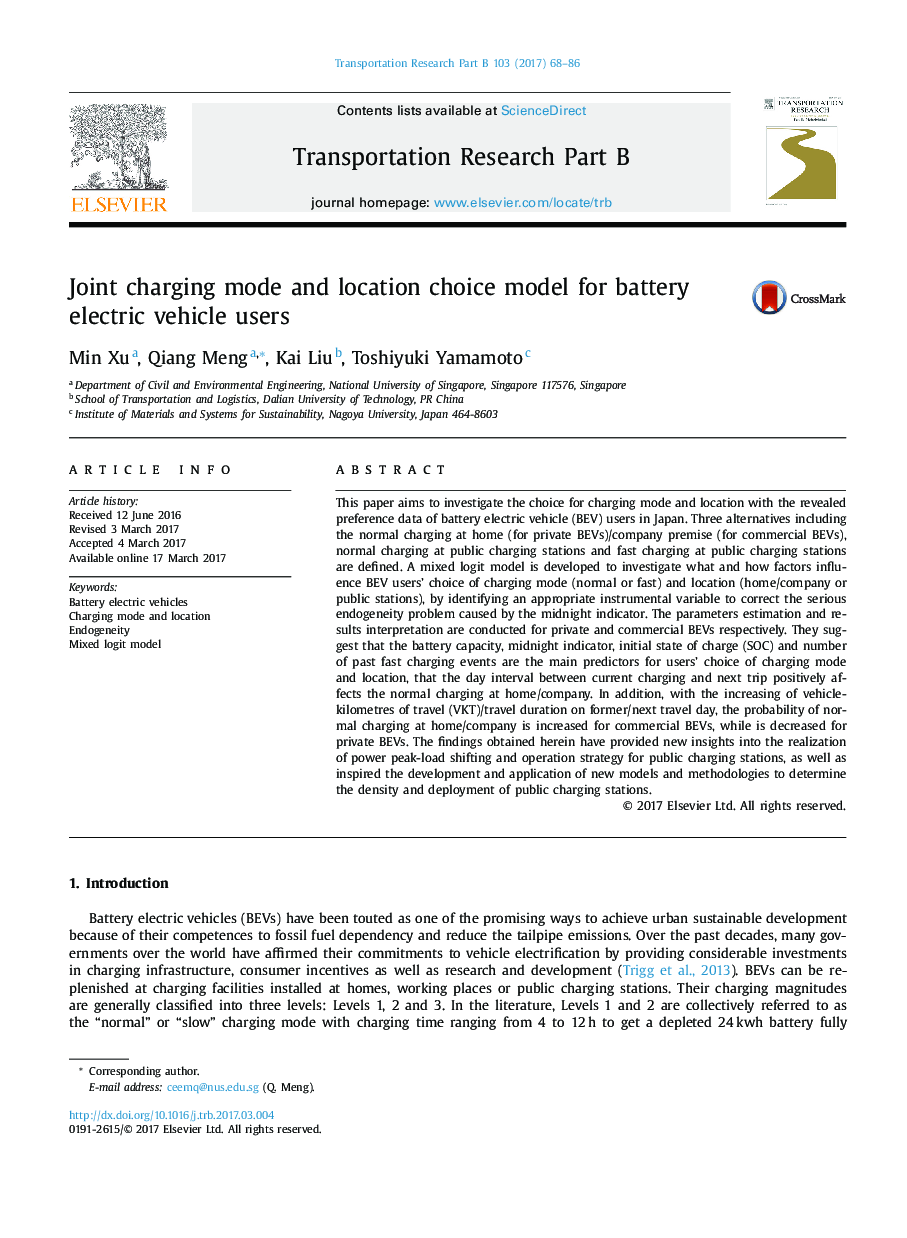| Article ID | Journal | Published Year | Pages | File Type |
|---|---|---|---|---|
| 5126992 | Transportation Research Part B: Methodological | 2017 | 19 Pages |
â¢A mixed logit model for the choice analysis of charging mode and location.â¢A tangible procedure to perform data processing and cleaning.â¢An appropriate instrumental variable to correct the endogeneity issue.â¢Far-reaching implications for operation and deployment of charging stations, etc.
This paper aims to investigate the choice for charging mode and location with the revealed preference data of battery electric vehicle (BEV) users in Japan. Three alternatives including the normal charging at home (for private BEVs)/company premise (for commercial BEVs), normal charging at public charging stations and fast charging at public charging stations are defined. A mixed logit model is developed to investigate what and how factors influence BEV users' choice of charging mode (normal or fast) and location (home/company or public stations), by identifying an appropriate instrumental variable to correct the serious endogeneity problem caused by the midnight indicator. The parameters estimation and results interpretation are conducted for private and commercial BEVs respectively. They suggest that the battery capacity, midnight indicator, initial state of charge (SOC) and number of past fast charging events are the main predictors for users' choice of charging mode and location, that the day interval between current charging and next trip positively affects the normal charging at home/company. In addition, with the increasing of vehicle-kilometres of travel (VKT)/travel duration on former/next travel day, the probability of normal charging at home/company is increased for commercial BEVs, while is decreased for private BEVs. The findings obtained herein have provided new insights into the realization of power peak-load shifting and operation strategy for public charging stations, as well as inspired the development and application of new models and methodologies to determine the density and deployment of public charging stations.
